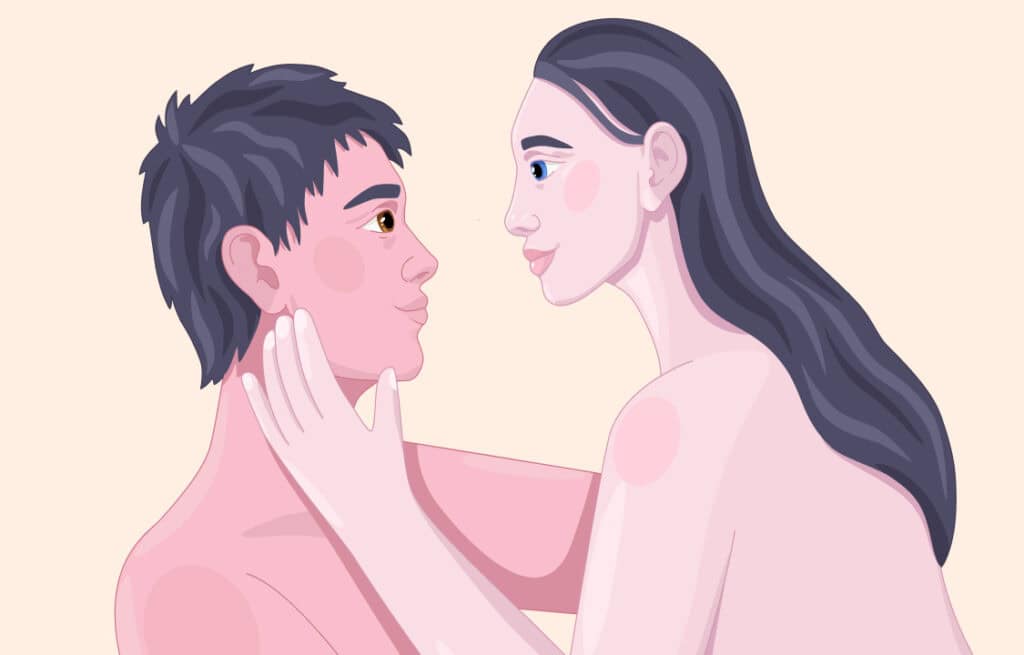Lifestyle
Why Father’s Day is So Special: Honouring Our Heroes
Father’s Day is our chance to shine a spotlight on all the incredible things dads do. It’s a day to celebrate their love, sacrifices, and the countless ways

Father’s Day is here! It’s not just another date on the calendar, but a day full of love, appreciation, and heartfelt gratitude. Today, families around the world are taking a moment to honor the men who have shaped their lives with unwavering support and wisdom. Let’s chat about how Father’s Day came to be, why it’s so special, and the unique role dads play in our lives today.
How It All Started
You might not know this, but Father’s Day actually started because of one daughter’s deep love for her dad. Back in 1910, a woman named Sonora Smart Dodd from Spokane, Washington, thought, “Hey, dads deserve a day too!” after being inspired by Mother’s Day. Her own father, William Jackson Smart, was her hero. After her mother passed away, he single-handedly raised Sonora and her five siblings. Talk about dedication!
Thanks to Sonora’s efforts, the first Father’s Day was celebrated on June 19, 1910. But it wasn’t until 1972 that President Richard Nixon made Father’s Day an official holiday in the United States. Now, it’s celebrated worldwide, and each country adds its own unique twist to the celebrations.
Why Father’s Day is So Special
Father’s Day is our chance to shine a spotlight on all the incredible things dads do. It’s a day to celebrate their love, sacrifices, and the countless ways they make a difference in our lives. Whether it’s teaching us how to ride a bike, helping with homework, or giving us the best advice, dads play a crucial role in shaping who we are.
And here’s the cool part: fatherhood is evolving. Today’s dads are breaking away from traditional roles and becoming more involved in nurturing and caregiving. It’s a beautiful change, showing just how adaptable and multifaceted fatherly love can be.
Nowadays, dads do it all. They’re not just the breadwinners anymore; they’re active participants in every part of family life. Here’s how they’re making their mark:
- Role Models: Dads teach us values like honesty, hard work, and compassion just by being themselves.
- Mentors: They guide us through life’s ups and downs, sharing wisdom from their own experiences.
- Support Systems: Dads are our emotional and psychological rock, helping us build confidence and resilience.
- Partners in Parenting: Modern dads share the responsibilities of raising kids, creating a balanced and nurturing home environment.
In today’s fast-paced world, having a supportive and engaged dad is more important than ever. Their presence provides stability and a sense of security, positively impacting our development and setting a solid foundation for our future.
Father’s Day celebrations can be as unique as the dads we’re honoring. Some families throw a big barbecue, others enjoy a quiet day at home, and some might go on a fun adventure. The goal is simple: show our dads how much we appreciate them. Whether it’s a heartfelt card, a thoughtful gift, or just spending quality time together, it’s the love behind the gesture that counts.
So, Father’s Day is all about celebrating the everyday heroes in our lives. It’s a day to recognize the sacrifices they make, the love they give, and the essential role they play in shaping who we are. As we celebrate our dads today, let’s cherish the timeless values they impart and the lasting impact they have on our world. Here’s to all the amazing dads out there – Happy Father’s Day!
You may like
-
2025: How To Plan A Budget For The Upcoming Year
-
Ruud van Nistelrooy Opens Up on Hurtful Manchester United Exit Before Taking Leicester City Job
-
Simon Ekpa’s Legal Troubles Deepen as Finnish Court Sets Date for Terror Charges
-
Tonye Cole Speaks on Petrol Selling Below N700 Per Litre
-
Kissing: The Healthy Benefits of Smooching
-
AMGA ABUJA 2024:• FIBA Africa Zone 3 President retired Colonel Samuel Ahmedu, elated with AMGA’s recognition
-
Champions League: What Guardiola Told City Players Ahead Clash With Feyenoord
-
PMS to reduce to N900 per litre – Marketers
-
Breaking: Port Harcourt Refinery Begins Crude Oil Processing at 60% Capacity
-
Nigeria’s Tobi Amusan enters University of Texas Hall of Fame
-
Labour Party Launches Grassroots Initiative to Empower Youths Ahead of 2027 Elections
-
HP Wolf Security Launches Advanced Physical Cyberattack Protection for Business Introducing HP Enterprise Security
Lifestyle
2025: How To Plan A Budget For The Upcoming Year
Budgeting helps you track your income and expenses, ensuring you live within your means. It can help you save for emergencies, pay off debt

Want to get your finances in order for the upcoming year? Planning a budget is a smart way to manage your money, save for future goals, and reduce financial stress. Let’s walk through how to create an effective budget.
Why Budgeting Matters
Budgeting helps you track your income and expenses, ensuring you live within your means. It can help you save for emergencies, pay off debt, and achieve financial goals. According to NerdWallet, budgeting is a crucial tool for financial success.
Steps to Create a Budget
1. Assess Your Income
Start by calculating your total monthly income. This includes your salary, freelance work, and any other sources of income. Knowing your total income sets the foundation for your budget.
2. Track Your Expenses
Track all your expenses for a month to understand where your money is going. Use tools like Mint or a simple spreadsheet to categorize your spending.
3. Categorize Your Expenses
Divide your expenses into fixed (rent, utilities) and variable (groceries, entertainment) categories. This helps you identify areas where you can cut back.
Setting Financial Goals
Having clear financial goals can motivate you to stick to your budget. Here are some common goals:
- Emergency Fund: Aim to save 3-6 months’ worth of expenses.
- Debt Repayment: Focus on paying off high-interest debt first.
- Savings Goals: Save for a vacation, a down payment on a house, or retirement.
Creating Your Budget
1. Allocate Your Income
Distribute your income to cover your expenses and savings goals. A popular method is the 50/30/20 rule:
- 50% for Needs: Essential expenses like housing, utilities, and groceries.
- 30% for Wants: Discretionary spending like dining out, hobbies, and entertainment.
- 20% for Savings: Savings, investments, and debt repayment.
2. Adjust as Needed
Review your budget regularly and adjust it based on your spending patterns. Flexibility is key to maintaining a realistic budget.
Tips for Sticking to Your Budget
1. Use Budgeting Apps
Apps like YNAB (You Need A Budget) and EveryDollar can help you stay on track.
2. Avoid Impulse Purchases
Make a shopping list and stick to it. Avoid browsing online stores unless you need something specific.
3. Plan for Unexpected Expenses
Set aside a small amount each month for unexpected expenses to avoid dipping into your savings.
Conclusion
Planning a budget for the upcoming year is a proactive way to take control of your finances. By assessing your income, tracking your expenses, setting financial goals, and allocating your income wisely, you can create a budget that works for you. Regularly reviewing and adjusting your budget will help you stay on track.
Ready to start budgeting? Visit Wave News NG for more tips and resources on financial planning and budgeting.
Health
Cancer Diagnosis: Death sentence or new perspective to life?

At 25 years and newly married, Mrs Elizabeth Awo-Ejeh was full of life and had her dreams of building a family while pursuing the career ahead of her.
However, in 2021, she discovered a lump in one of her breasts. To her, it was not anything to bother about since it did not hurt her, and neither was there any discharge from it.
During a visit to the hospital, the doctor even reassured her that the lump was nothing to worry about.
“However, deep down, I felt something was not right. Thankfully, my husband encouraged me to seek a second opinion.
“At the next hospital, the doctor recommended a breast ultrasound because I was only 24 at the time. The results showed that the lump was a Fibro Adenoma, a non-cancerous tumour.
“The doctor advised me to either remove it or wait six months to see if it would go away on its own and I chose to wait, but after six months, I began to feel sharp pain and noticed some discharge.
“I immediately knew something was wrong and went back to the hospital for another ultrasound. This time, the results showed the lump was suspicious for cancer,’’ she said.
According to her, after a biopsy, she was diagnosed with invasive ductal carcinoma, Estrogen Receptors and Progesterone Receptors-positive.
“At just 25, newly married and with dreams of starting a family and building my career, I felt my world fall apart,” she narrated.
Like many, Awo-Ejeh believed cancer diagnosis to be a death sentence. But her perception has changed since medical experts convinced her that it can be treated.
According to her, she was referred to a hospital for treatment, where she underwent eight sessions of chemotherapy, a mastectomy to remove the affected breast and 25 sessions of radiation.
“With God’s help, I am now in remission. Since the cancer is hormone receptor-positive, I have been on hormone therapy for five years, taking medication daily to prevent a recurrence.
“Cancer is highly treatable, especially when detected early, which is why I am sharing my story,” she said.
For Mrs Mariam Salami, before her diagnosis, she lived an unhealthy lifestyle, often prioritising convenience and comfort over well-being.
She said her diet was filled with processed foods, high in sugar and unhealthy fats, with minimal intake of healthy diet.
However, getting diagnosed with cancer was something she was completely unprepared for.
“The news hit me like a wave, leaving me feeling heartbroken, shocked, and overwhelmed. I was consumed by sadness and a deep sense of fear.
“Questions flooded my mind as I tried to make sense of it all, wondering how this could have happened and what I could have done differently.
“It felt like my world had been turned upside down in an instant, and I was left grappling with uncertainty, struggling to find the strength to face what lay ahead,” she said.
Salami said that her experience during treatment was filled with immense pain and anguish, with every step testing her strength in ways she never imagined, leaving her physically and emotionally drained.
However, through it all, the support she received from her spouse, family, friends and colleagues strengthened her throughout the treatment.
The World Health Organisation (WHO) describes cancer as a large group of diseases that can start in almost any organ or tissue of the body.
It happens when abnormal cells grow uncontrollably beyond their usual boundaries to invade adjoining parts of the body and/or spread to other organs.
WHO also said cancer was the second leading cause of death globally, accounting for an estimated 9.6 million deaths, or one in six deaths, as at 2018.
According to data from the Global Cancer Observatory (GLOBOCAN), Nigeria recorded 127,763 new cancer cases in 2022.
The consequence is 79,542 deaths from breast cancer, prostate and cervix uterias the top leading cancers in the country.
The Federal Ministry of Health and Social Welfare says there was no actual data on the number of cancer survivors in the country as the nation just recently began to collect data on cancer survivors.
According to Dr Uchechukwu Nwokwu, the National Coordinator, National Cancer Control Programme the ministry before now, the data collected from hospitals on survivors and have not been captured in the Cancer Registry (CANREG) software.
He said what was captured were diagnosis, age and the type of cancer, but that in the current strategic plan, survivorship now stands as an area of interest.
However, based on the programmes implemented by the Federal Government through the ministry, such as the Cancer Access Partnership Programme (CAPP) and the Cancer Health Fund (CHF), data on those who have accessed the programme exists.
“Those we refer to as “survivors” in cancer management are those who have lived with the disease or have managed it and survived for five years. We consider them as having survived the disease.
“This is because most cancers are not curable. About 40 per cent are actually curable, but majority, about 46 per cent are not curable.”
According to Nwokwu, about 6,000 cancer patients have accessed CAPP.
“For those who have commenced therapy after diagnosis, we can confidently say based on our experience that 50 per cent of them survive the disease.”
He, however, said that the major challenge that has affected survivorship of the disease was late diagnosis and commencement of treatment.
Speaking no why the disease does not pose a death threat as it did before, Dr Hannatu Ayuba, said this was because there were now advancements in the management of cancer in all the different modalities of treatment.
Ayuba is a Radiation and Clinical Oncologist at the National Hospital, Abuja.
She cited with early detection as one of the factors, adding that there were also improved screening methods and more sensitive biomarkers that make it easy to detect the disease before it manifests.
She also said there are more improved surgical techniques such as minimally invasive surgeries and robotic surgeries which are highly precise.
“There have also been advancements in radiation therapy by the use of highly targeted treatments, intensely modulated radiation treatment, stereotactic body radiation and stereotactic radio surgery.
“All these have benefits just like surgery when it’s done in very sensitive areas, protecting nearby critical structures.
“Also, there are more sensitive, more advanced therapies in radiation treatment like the proton therapy, and intensity modulated proton therapy and in the chemotherapy modality, there are more tailored regimens from clinical trials,” she said.
These, according to her, have brought out different and more effective patterns of targeted treatments that improve efficacy with reduced toxicity profiles.
Ayuba said in immunotherapy, there were special medications used to help improve the immune system to fight cancer cells.
She said in precision medicine, there was genetic profiling, molecular diagnostics, which guide and personalise treatment decisions for different diseases, giving some form of customised treatment for patients.
“There are more advanced, more effective medications for hormone therapy for certain tumors that are hormone sensitive like breast and prostate.
“We also have stem cell transplants. These are procedures that help to rebuild the immune system after high dose chemotherapy has been given for certain cancers that need such treatments” she said.
The oncologist said that all these have improved patient outcomes.
She said that presently, the practice in most of the nation’s tertiary hospitals where cancer is managed is the employment of more improved procedures in supportive care.
She said it also included the management of the side effects that patients go through, pain management and mental health in cancer survivors.
Prof. Muhammad Pate, Coordinating Minister of Health and Social Welfare, urged Nigerians to not be afraid about cancer as it was no longer an invitation to death.
This, he said, was because due to genomics, advances in the technology and precision medicine, there was the possibility that an increasing number of cancers will be curable.
He, however, said that it was not over yet, adding that even with technological advancements, cancer now stands as the fastest growing Non-Communicable Disease (NCD) in Nigeria.
Ms Gloria Orji-Nwajiogu, a two-time survivor of breast cancer and an advocate, cancer survivors need a lot of intervention to continue with their lives.
Orji-Nwajiogu, President of the Network of People Impacted by Cancer in Nigeria, said that the issue of stigma that accompanies the disease was worrisome.
“It’s not just about the treatment, we should think about the survivorship.
“Unfortunately that is one area that we have been lacking in Nigeria and that is because even some of the doctors do not believe that there can be cancer survivors in Nigeria so why do you need to make plans for them.
“I would want legislation so that a cancer patient, even after diagnosis, will not be laid off work. Many private-sector employers sack them, though hose in government employment are not usually affected,” she said.
Health
Constant sexual intercourse does not prevent prostate cancer– urologist

Dr Odezi Otobo, a Consultant Urologist says there is no medical or urological evidence that constant sexual intercourse and ejaculation reduce a man’s risk of contracting prostate cancer.
Otobo, who works with the University of Calabar Teaching Hospital (UCTH), said this at a medical outreach for men organised by Asi Ukpo Comprehensive Cancer Centre on Monday in Calabar.
The News Agency of Nigeria (NAN) reports that the outreach which was held at the premises of the Christian Central Chapel International (CCCI), Calabar, is part of programmes to commemorate “Movember.”
Movember, which involves growing of moustaches, is an annual event held in November to raise awareness of men’s health issues such as prostate cancer, testicular cancer and men’s mental health.
The urologist who was reacting to claims on social media that constant sexual activities and having multiple girlfriends could prevent prostate cancer, said the disease was either hereditary, caused by lifestyle or environment.
“Instead of taking unprofessional and unscientific advice from different quarters, it is important to visit a hospital if you notice anything and for those in their forties and fifties, get screened because early detection is key to effective treatment of cancer.
“Prostate cancer is an indolent cancer and can be handled when a man is aware, visit a medical facility and change his lifestyle, not by having multiple ‘side chicks,’ he said.
On his part, Mr Yegwa Ukpo, the Executive Director, Asi Ukpo Comprehensive Cancer Centre, said they had to commemorate Movember because men’s health issues were hardly addressed in the society.
Represented by Mrs Mercy Njoku, Event and Outreach Manager of the centre, Ukpo said there was something about masculinity in the society that made men thought they had to keep their issues to themselves.
“I want to appeal to the men to take their health seriously because cases of men slumping and dying in their forties and fifties are on the increase, we don’t want this to continue.
“Also, a lot of men engage in excessive intake of alcohol, others work all the time just to make ends meet without checking their livers, kidneys, hearts and even mental state, this is why we are insisting on this outreach which will be annually,” he said.
Similarly, Dr Saviour Eze, Head of Medical Team in CCCI said that they decided to partner with ASI Ukpo because the outreach specifically called out men to be attended to which was quite unusual in the society.
Eze said as a church, they recognised the fact that physical illnesses should be handled by those God had placed in the Medical profession to take care, even though they pray for God’s healing.
NAN also reports that the outreach which saw men screened for the function of their hearts, kidneys, livers and Prostate Specific Antigen (PSA) was in partnership with the Nigerian Medical Association (NMA), Rotary Club and,Pink Africa among others.
Entertainment
Why women pay attention to skincare – Dermatologist

Dr Ifeoma Abajue, a dermatologist and Chief Executive Officer of The Aesthetic Clinic (TAC), has advised Nigerians to pay more attention to skincare as a strategy to stay healthy.
She gave the advice in an interview with the News Agency of Nigeria (NAN) on the sidelines of launch of the Ikeja GRA Branch of TAC on Saturday night.
NAN reports that TAC held training sessions for aestheticians, dermatologists and skincare givers at the launch.
The training was tagged: “Beyond the Surface”.
According to Abajue, TAC has trained no fewer that 300 women in the past six months on skincare and beauty therapy.
She noted that the skin covered the largest percentage of the human body and needed special treatment.
She said that because of the prominence of the skin, it required more attention for aesthetics, wellness and overall well-being.
According to Abajue, who is a member of the Nigerian Medical Association and Nigerian Association of Dermatologists, TAC will do its best to bridge skincare and beauty therapy deficit in Nigeria.
Abajue, also a member of Nigerian Medical Women’s Association, said that TAC was a pioneer in skincare, aesthetics and dermatology therapy in Nigeria.
She said that the launch of the Ikeja Branch of TAC was to bring beauty products, services and training in skincare closer to Lagos Mainland.
Abajue added that the firm offered over 40 courses in beauty, cosmetic science, chemistry, manicure and pedicure, massages, facials, laser, micro-needling and nail technology, among others.
She said that in spite of economic challenges, women especially still desired to care about their skin to look good and stay healthy.
Tomi Omowole, Head of Strategy at KTMedia Company, said the first edition of ‘Beyond The Surface’ held in August at Lekki, noting that Saturday’s edition was the second.
Omowole, whose firm organised the training, said the event was also aimed at bringing together aestheticians to consider forming an association in Nigeria.
She said that TAC had branches at Lekki Abuja, Accra, Montreal, Toronto, London, and Manchester.
“Our clients have been asking us to bring a branch to Lagos mainland, and we decided to bring something of great standards to the mainland.
“The way you take care of your heart, your liver and your kidney is the same way you should take care of your skin,” Omowole urged.
Weight-Loss
Effective Ways to Achieve Weight Loss

Losing weight can be challenging, but with the right approach, it is achievable. Here are some effective ways to help you reach your weight loss goals:
- Set Realistic Goals: Before starting any weight loss program, it’s essential to set realistic goals. Aim to lose 1-2 pounds per week for a sustainable weight loss.
- Eat a Balanced Diet: Focus on consuming a balanced diet rich in whole foods, fruits, vegetables, lean proteins, and whole grains. Avoid processed and high-calorie foods.
- Hydrate Adequately: Drinking plenty of water is crucial for weight loss. Aim for at least 8 cups (64 ounces) of water per day.
- Incorporate Physical Activity: Regular exercise not only helps with weight loss but also improves overall health. Aim for at least 150 minutes of moderate-intensity exercise or 75 minutes of vigorous-intensity exercise per week.
- Get Enough Sleep: Poor sleep can disrupt hormones that regulate hunger and fullness, leading to weight gain. Aim for 7-9 hours of sleep per night.
- Manage Stress: Chronic stress can lead to emotional eating and weight gain. Engage in stress-reducing activities like meditation, yoga, or deep breathing exercises.
- Monitor Progress: Regularly tracking your weight, measurements, and progress photos can help you stay motivated and on track.
- Seek Support: Having a support system in place can make a significant difference in your weight loss journey. Share your goals with friends and family, and consider joining a weight loss support group.
- Be Mindful of Portion Sizes: Eating large portions can lead to consuming more calories than needed. Use a food scale or measuring cups to gauge your portion sizes.
- Get Professional Help: If you’re struggling to lose weight or need personalized guidance, consider consulting a registered dietitian or a healthcare professional.
Remember, weight loss is not a one-size-fits-all approach. It’s essential to find a method that works for you and your lifestyle. Be patient, stay consistent, and celebrate small victories along the way.
Additional Tips:
- Eat more protein to help with satiety and muscle mass.
- Incorporate high-intensity interval training (HIIT) for efficient calorie burn.
- Get enough probiotics to support gut health and weight loss.
- Avoid fad diets and focus on sustainable lifestyle changes.
By incorporating these effective ways to achieve weight loss, you’ll be on your way to a healthier, happier you.
Fashion
Fascinating Facts About Lingerie You Never Knew

Lingerie is a fundamental part of our wardrobes, but how much do we really know about it? From the history of lingerie to the psychology behind wearing it, there’s more to lingerie than meets the eye. Here are some fascinating facts about lingerie that you might not know:
- The word “lingerie” comes from the French word for “linen”: Lingerie was originally designed to be worn next to the skin, under clothing.
- The first modern bra was invented in the late 19th century: Mary Phelps Jacob, an American socialite, patented the first modern bra in 1913.
- Lingerie can boost self-confidence: Wearing lingerie can make women feel more confident, sexy, and empowered.
- The world’s most expensive lingerie set is worth over $1 million: The “Heavenly Star Bra” is adorned with diamonds, rubies, and sapphires.
- Lingerie has been around for thousands of years: The ancient Egyptians, Greeks, and Romans all wore forms of lingerie.
- The average woman owns over 20 pairs of underwear: But how many of us actually wear them all?
- Lingerie can be a form of self-care: Wearing comfortable, beautiful lingerie can be a way to pamper oneself.
- The world’s largest lingerie store is located in Dubai: The store covers over 10,000 square feet and offers a vast range of lingerie styles.
- Lingerie has become a major fashion trend: Designers like Victoria’s Secret and Savage X Fenty have made lingerie a staple of high-fashion.
- The average woman spends over $100 per year on lingerie: That’s a lot of money spent on looking and feeling good!
There you have it – 10 fascinating facts about lingerie that you might not have known. Whether you’re a lingerie enthusiast or just someone who appreciates the beauty of a well-designed bra, these facts are sure to intrigue.

2025: How To Plan A Budget For The Upcoming Year

Ruud van Nistelrooy Opens Up on Hurtful Manchester United Exit Before Taking Leicester City Job

Obasanjo would have died under Abacha if not for me -Gowon

Why I don’t trust any public institution in Nigeria – Fisayo Soyombo

Minimum Wage: Cross Rivers Workers to embark on indefinite strike

Bayer Leverkusen Forward Victor Boniface Faces Possible Sanction for Reckless Driving Incident

Radda approves N70,000 minimum wage for Katsina workers

PH refinery has not commenced bulk sales – NNPC

CBN issues Dec. 1, ultimatum against banks, ATM delays




















